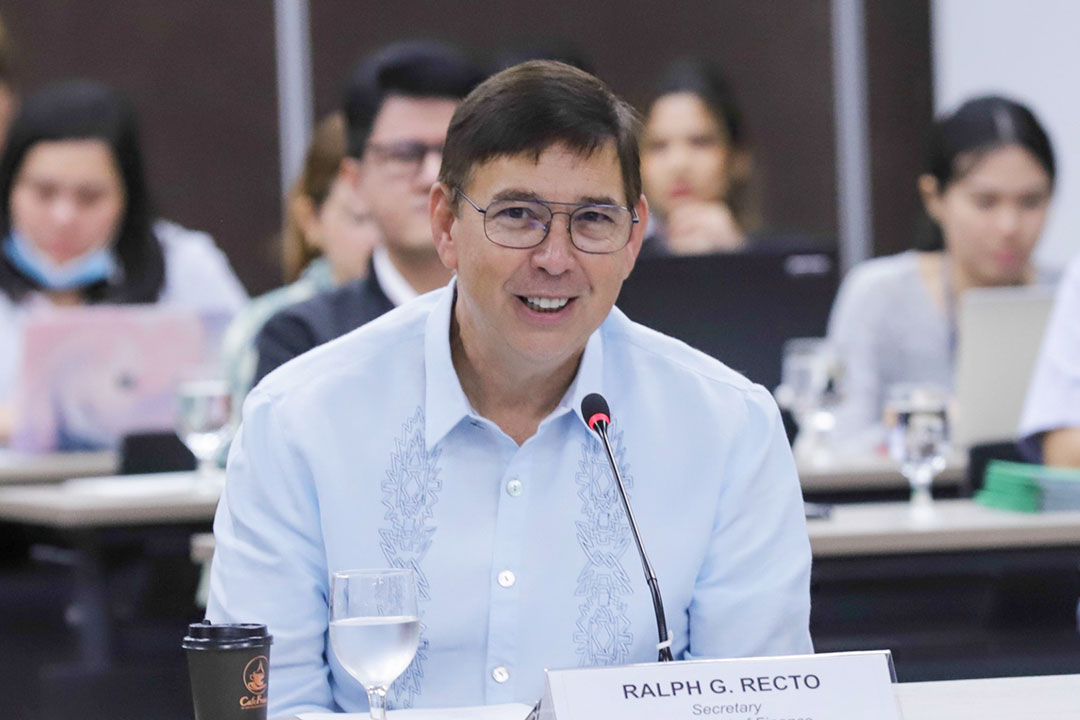DoF hikes dividend rate of GOCCs

Luisa Maria Jacinta C. Jocson, Reporter
FINANCE SECRETARY Ralph G. Recto has ordered government-owned or -controlled corporations (GOCC) to increase their contributions to the National Government (NG) to boost state coffers.
Mr. Recto raised the mandatory dividend remittances of GOCCs to the National Government to 75% of their annual net earnings in 2023 from 50%, the Department of Finance (DoF) said in a statement.
Under Republic Act No. 7656 or the Dividends law, GOCCs must declare and remit at least 50% of their annual net earnings as cash, stock or property dividends to the National Government.
Mr. Recto also clarified that there is no need to amend the law to implement the increase.
In 2021, then-Finance Secretary Carlos G. Dominguez III proposed amending the law to hike the mandatory contributions of GOCCs to 75% of their earnings, as a way to fund fiscal stimulus measures amid a coronavirus pandemic.
Mr. Recto said the DoF is looking for ways to increase revenue without imposing new taxes.
As of April 24, dividend collections from GOCCs surged to P39.8 billion from P8 billion a year earlier.
Some state companies have remitted their adjusted contributions including the Philippine Amusement and Gaming Corp. (PAGCOR).
PAGCOR earlier said it had remitted P4.59 billion in cash dividends to the Treasury, representing 75% of its net income last year.
The DoF said Mr. Recto also signed a circular in February to further “mobilize substantial nontax revenues from GOCCs’ unrestricted fund balances to unlock the unprogrammed appropriations of the 2024 General Appropriations Act.”
This would help fund the government’s priority programs and projects, it added.
In 2022, dividends from GOCCs rose by an annual 46% to P99.98 billion.
Ateneo de Manila University economics professor Leonardo A. Lanzona said raising the contributions of GOCCs could threaten their financial stability.
“If this percentage increases, GOCCs might alter their financial strategies to accommodate the higher dividend payments,” he said in an e-mail. “This can result in cutting costs, creating negative effects on their operation and efficiency.”
“The overall institutional weakness can then lead to lower investments in these GOCCs. Furthermore, as the funds might be transferred from the National Government, more expenditures that lead to inflation can occur,” he added.
Rizal Commercial Banking Corp. Chief Economist Michael L. Ricafort said this move would reduce the government’s borrowings and overall debt.
“This is part of the government’s fiscal reform measures to optimize the country’s financial resources that could help reduce the NG debt-to-GDP ratio to less than the international threshold of 60%,” he said in a Viber message.
Latest data from the Bureau of the Treasury showed that the NG’s outstanding debt had hit a fresh high of P15.18 trillion as of end-February.
The government seeks to bring down its debt-to-gross domestic product ratio to 60.3% this year and to 55.9% by 2028.
